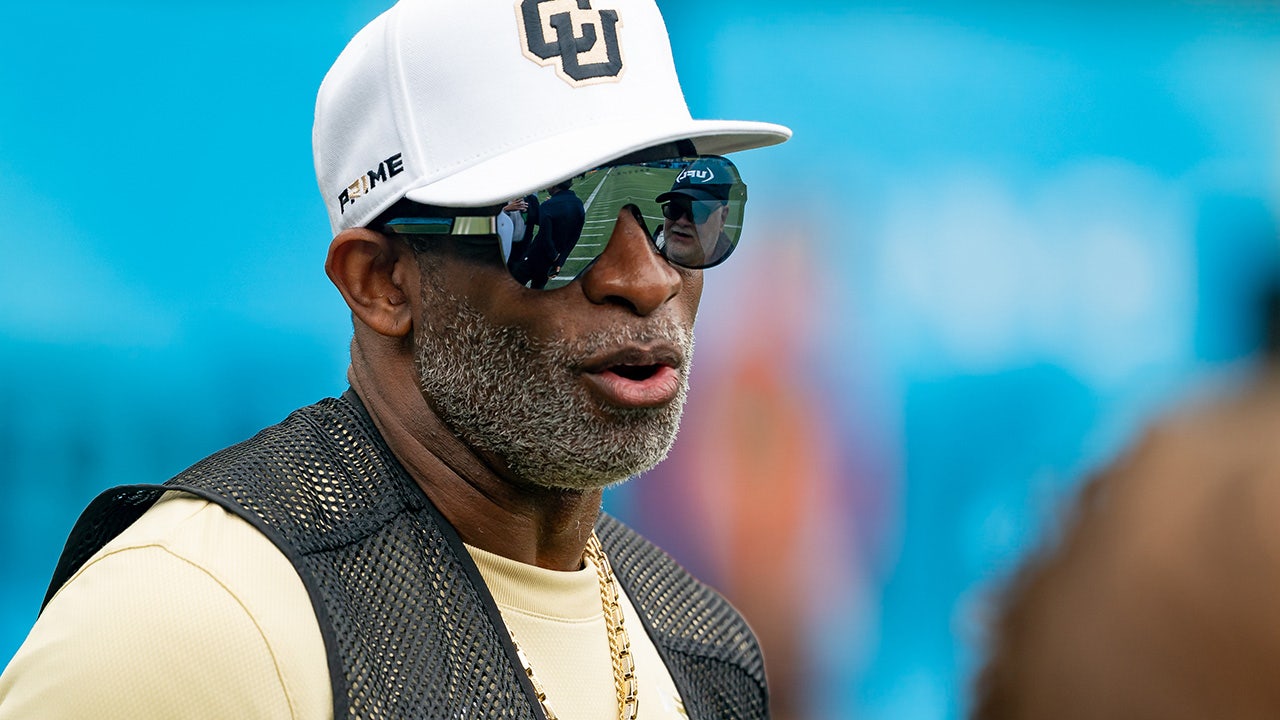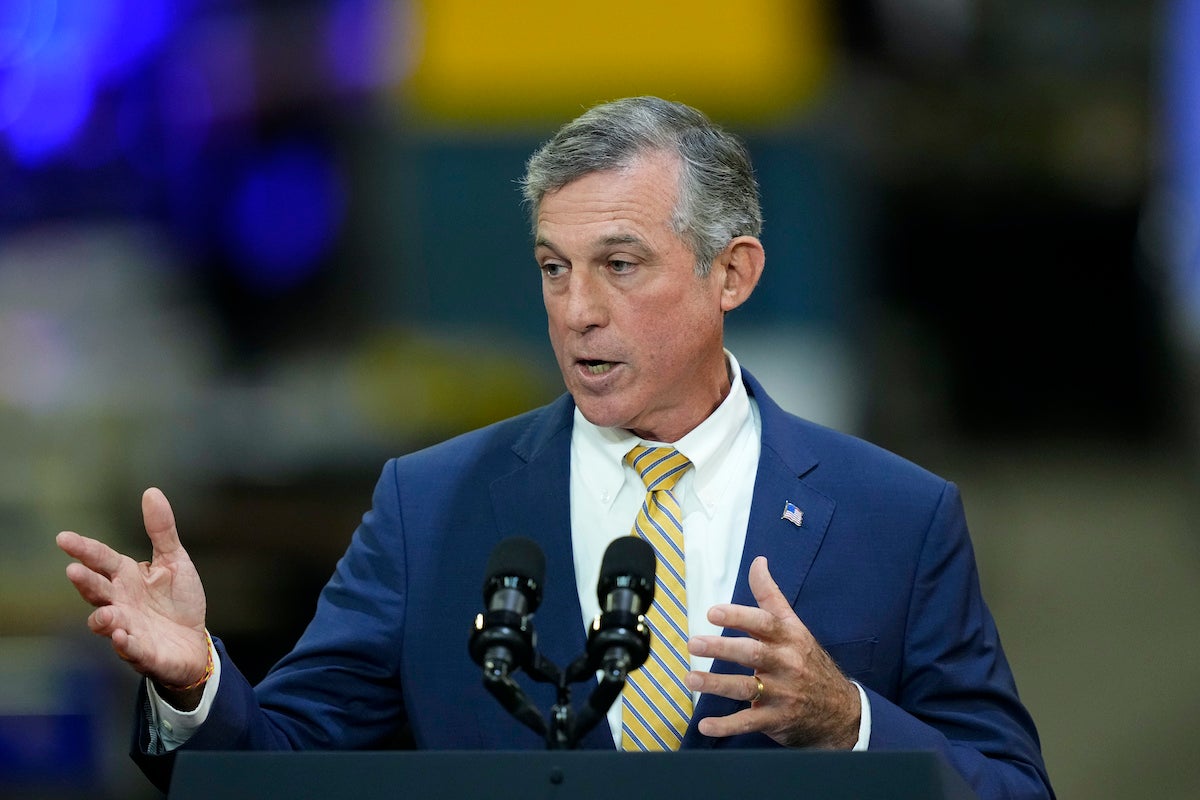Politics
Abortion ban has supercharged Arizona politics. What will GOP legislators do?

Abortion politics and policy are clashing here like in no other state as the Republican-led Legislature convenes Wednesday to sort out the aftermath of a ruling allowing a statewide ban to take effect within weeks.
It adds more uncertainty for a state that has sometimes felt like the center of the political universe since President Biden’s 2020 victory here helped seal his election, prompting the first false cries from former President Trump that the election was rigged.
Republicans here are anxious and divided over how to handle the newest political surprise, delivered last week when the state Supreme Court ruled that a nearly complete ban — which had been on the books since 1864, before Arizona became a state — could take effect. The state currently permits abortions until the 15th week of pregnancy.
The focus on abortion, already a rallying cause for Democrats, has bolstered that party’s belief that it can use its support for reproductive rights to overcome voters’ angst over the economy and immigration and win a state that has gone their way in only two presidential elections since 1948. But leaders of an abortion rights ballot measure are trying to keep the party at arm’s length because they believe they can win broader support from Republicans and independents.
Still, the increasing number of rallies, signature-gathering events and political speeches over the last week are making the November election feel much more urgent here than in other parts of the country, where campaigns do not normally draw attention until the early fall.
“This is a huge political situation,” said state Sen. Anna Hernandez, a Democrat from Phoenix, who said she has heard from constituents in both parties who are upset with the near-total ban.
A Tuesday morning rally on a highway beside a strip mall, one of dozens around the state in the last week, drew more than 30 people waving “Remember in November” signs and carrying handcuffs to underscore the 1864 abortion statute’s threat of arrest for people who perform or help a woman obtain one. One man held a picture of Trump’s face covered by a red slash.
“It’s horrifying. It’s absolutely dangerous for all women — whether they want to be pregnant, whether they don’t want to be pregnant,” said Nancy Gillenwater, 63, a Scottsdale resident who said she had an abortion when she was 14 and another at 41, after having children.
Gillenwater, who became an active Planned Parenthood volunteer and storyteller when the U.S. Supreme Court overturned nationwide abortion rights in 2022, said she worries that her daughter can’t safely start a family and that her son-in-law, an emergency room physician, will face criminal prosecution for saving women’s lives.
Tuesday’s rally was one of dozens held across the swing state by residents decrying the 1864 law and emphasizing: “Remember in November.”
(Gina Ferazzi / Los Angeles Times)
Mari Urbina, national managing director of Indivisible, the anti-Trump group that organized the rally, had flown in from Washington to support state efforts. She said that since the state Supreme Court’s decision, her group had signed up hundreds of volunteer organizers here who agreed to contact friends and neighbors. Other left-leaning groups reported similar spikes in fundraising and activism.
The Legislature is looking at a pair of issues that will shape the short-term and long-term future of abortion here: whether to repeal the 1864 law, and whether to add more ballot questions to put before voters in the November election to compete with the abortion rights measure.
But Republicans, who hold one-vote majorities in Arizona’s House and Senate, are internally conflicted between the desire to impose strict abortion restrictions and the political reality that the issue could cost them elections, including the presidency.
Those dynamics erupted into a chaotic session last Wednesday, the day after the state Supreme Court ruling, with cries of “Shame! Shame!” and no action.
Since then, Republicans have been strategizing behind closed doors, with public pressure from Trump, who had previously said states should decide abortion law on their own, “to remedy what has happened.”
Repealing the 1864 measure would draw unanimous support from Democratic lawmakers and need the votes of only two Republicans in each chamber.
Even before the court ruled last week, abortion rights proponents said they had gathered enough signatures to put a statewide measure on the ballot that would lift virtually all abortion restrictions, including the current legal ban after 15 weeks. Two of the state Supreme Court justices who supported last week’s ruling will also be on the November ballot, which could draw more interest from abortion rights voters.
Abortion is the top issue for suburban women in seven swing states, according to a Wall Street Journal poll in March, in which 39% of those respondents cited the issue, far surpassing immigration (16%) and the economy (7%) in the seven states polled, including Arizona.
“I’m not saying that’s the deciding factor. But it’s the biggest factor, because we women vote,” said Nancy Musser, a 69-year-old Democrat who works an administrative job in the Maricopa County probation department.
Republicans are worried about that abortion rights measure and are considering how to counter it.
An internal GOP strategy presentation, first reported by NBC, showed Republicans were considering placing one or two competing measures on the November ballot that would draw down support from the abortion rights measure.
One idea under discussion would ask voters to consider what the presentation called “a 14-week law disguised as a 15-week law.” The Legislature can place measures on the ballot directly, and Democratic Gov. Katie Hobbs has no legal right to veto them.
Dawn Penich, communications director for Arizonans for Abortion Access, which is sponsoring the abortion rights measure, accused the Legislature of “deception and political game-playing.”
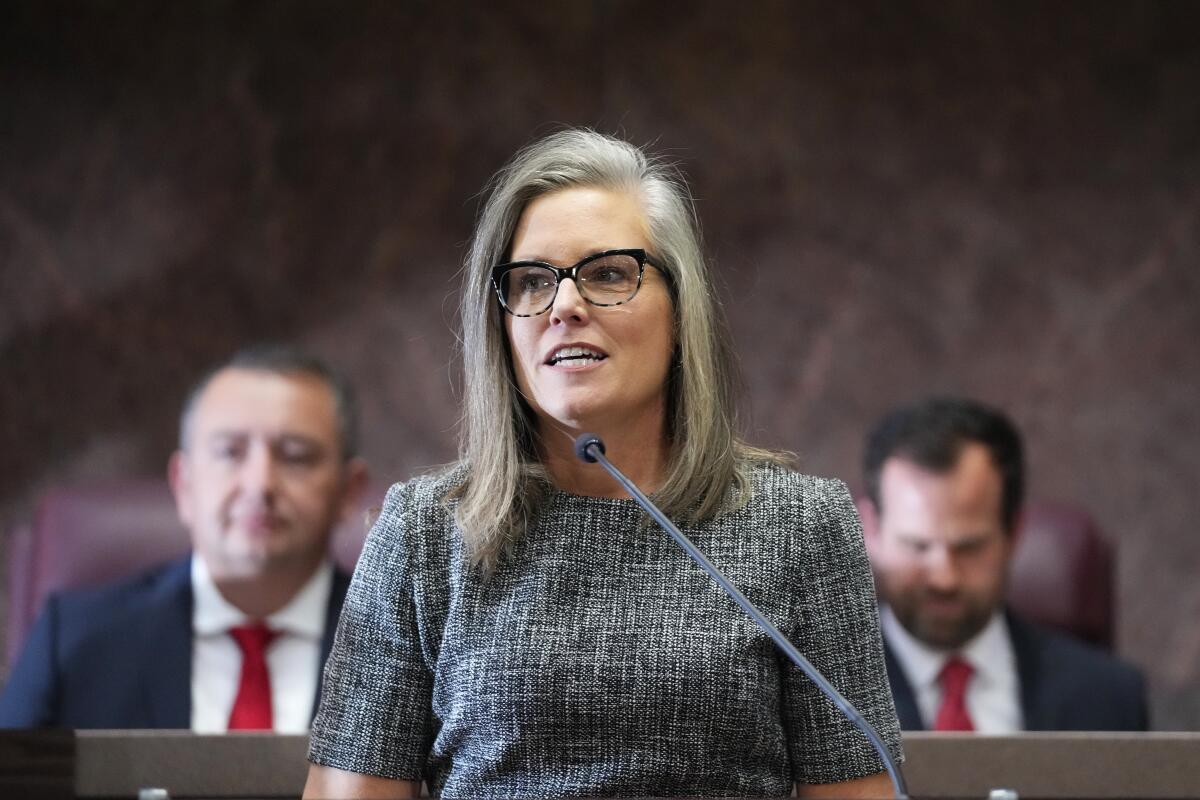
Democratic Gov. Katie Hobbs is powerless to stop the Republican-led Arizona Legislature if it decides to put an antiabortion measure or two on November’s ballot.
(Ross D. Franklin / Associated Press)
Republican House Speaker Ben Toma said in a statement: “The document presents ideas drafted for internal discussion and consideration within the caucus. I’ve publicly stated that we are looking at options to address this subject, and this is simply part of that.”
Even if the issue of abortion helps Democrats, there is no guarantee it will help Biden win the state, where many voters cite the economy as their top concern. The same Wall Street Journal poll of swing state voters found Trump leading in Arizona by 5 percentage points, and receiving much higher marks on the economy and immigration.
“Women should be able to decide,” said Nick Tsontakis, a 68-year-old architect. But he will vote for Trump, he said, feeling satisfied with Trump’s position that abortion laws should be up to the states.
Jose Salvador, a 42-year-old Democrat, agrees, calling the Supreme Court’s decision a mistake. But after voting for Biden in the last election, he has decided to vote for Trump, largely due to immigration and the economy, he said.
“Right now, the country is hurting financially,” he said. “And we need to take care of that first before we focus our resources on on this other issue.”

Politics
Omar Draws Criticism for Suggesting Some Jewish Students Are ‘Pro-Genocide’
Representative Ilhan Omar made the comments at Columbia University, where her daughter was among the students arrested protesting against Israel’s actions in Gaza. The protests have drawn visits by leaders across the political spectrum.
Politics
White House dodges questions on college administrators' response to anti-Israel protests on campuses
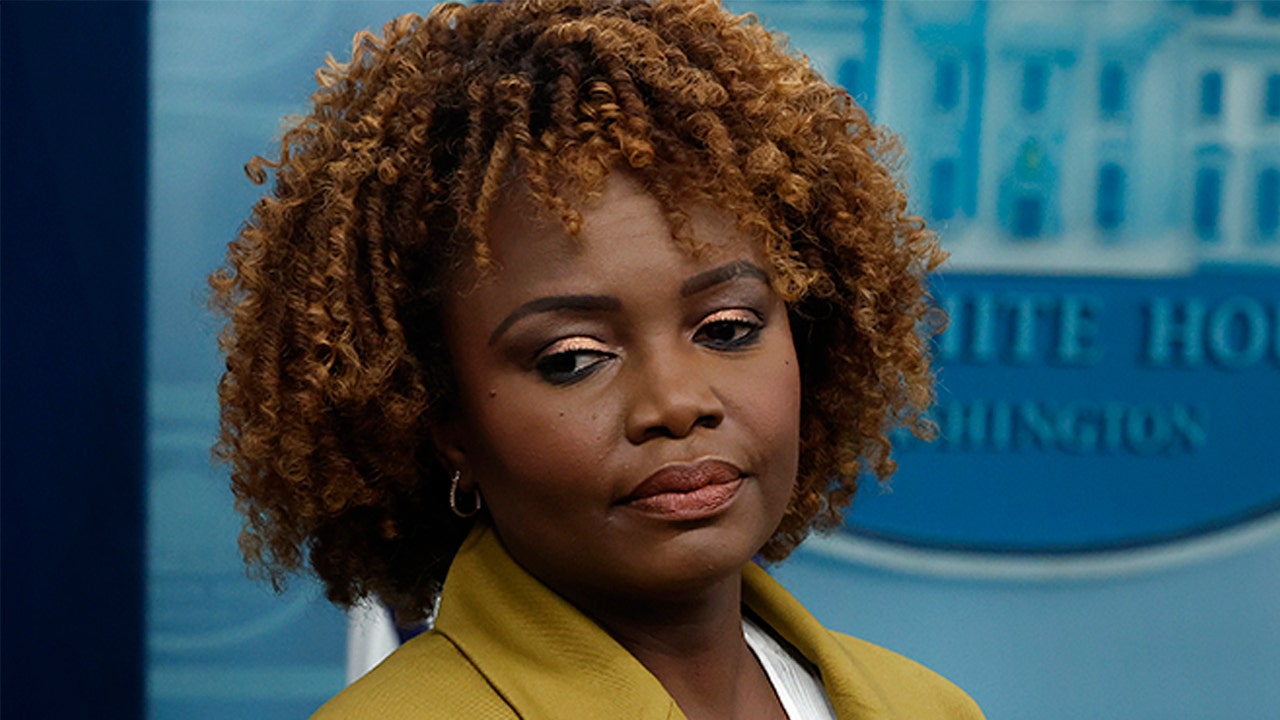
White House Press Secretary Karine Jean-Pierre dodged several questions during a press briefing on Monday, regarding the responses of many universities in the U.S. as anti-Israel protests, which sometimes turn violent, continue to flare up.
Colleges from coast to coast, including many Ivy League schools like Columbia, Yale, Harvard and Penn, have seen dayslong protests on campuses, with students demanding their schools completely divest from Israel as the death toll in Gaza continues to increase.
One reporter on Monday asked Jean-Pierre whether President Biden or anyone else in the White House had spoken with leadership at Columbia University, and if the president was happy with how school administrators are handling the situation.
“The president has always been clear that while Americans have the right to peacefully protest…he stands squarely, squarely against any rhetoric, violent rhetoric, any hate, hate threats and physical intimidation and hate speech,” she said, adding there is no place for antisemitism on college campuses or anywhere else. “It is a painful moment, we get that. But it is a painful moment that Americans are dealing with, and free expression has to be done within the law. And, you know, we’re going to continue to be very clear about that.”
COLUMBIA UNIVERSITY, ANTI-ISRAEL AGITATORS FAIL TO REACH DEAL, PRESIDENT ASKS CAMP TO ‘VOLUNTARILY DISPERSE’
White House Press Secretary Karine Jean-Pierre in the Brady Press Briefing Room at the White House on on January 03, 2024 in Washington, DC. (Chip Somodevilla/Getty Images)
The press secretary did not answer the question about whether Biden was satisfied with how universities are handling the situation. And that was not the only question she dodged.
Jean-Pierre was asked if the White House thought it was fair that protesters at Columbia or other schools were being threatened with probation or other disciplinary actions, and whether students should leave a protest before a deadline being given by university personnel at Columbia.
To both questions, Jean-Pierre said she would not comment.
VIRGINIA TECH POLICE PHYSICALLY CARRY AWAY ANTI-ISRAEL AGITATORS AMID EFFORT TO RESTORE PEACE ON CAMPUS
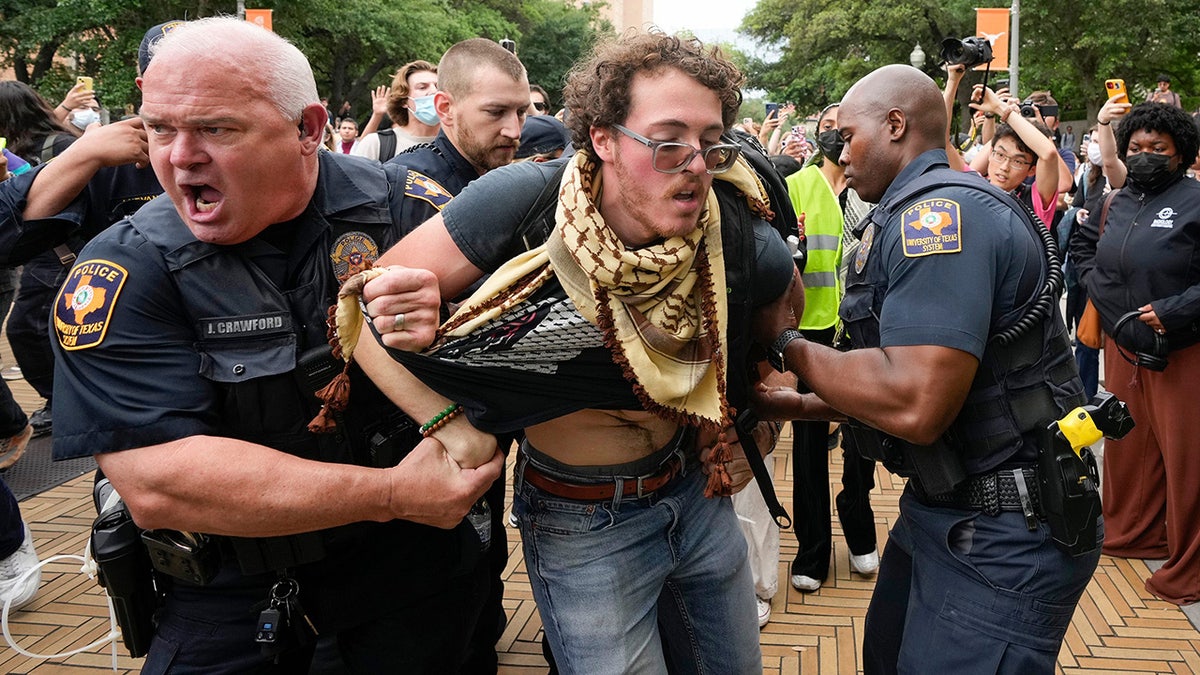
University of Texas police officers arrest a man at a pro-Palestinian protest at UT on Wednesday, April 24, 2024. (Jay Janner/American-Statesman)
“These are institutions. Some of them are private, some of them are public, and it is up to their leadership, university leadership and colleges, to make that decision,” she responded to the first question.
She nearly echoed her response to the second question.
“I’m just not going to comment on leadership at colleges and universities….that’s for them to decide,” Jean-Pierre said. “We’ve been very clear.”
TRUMP SAYS 4 WORDS ABOUT ANTI-ISRAEL PROTESTS ON COLLEGE CAMPUSES AS ARRESTS SKYROCKET
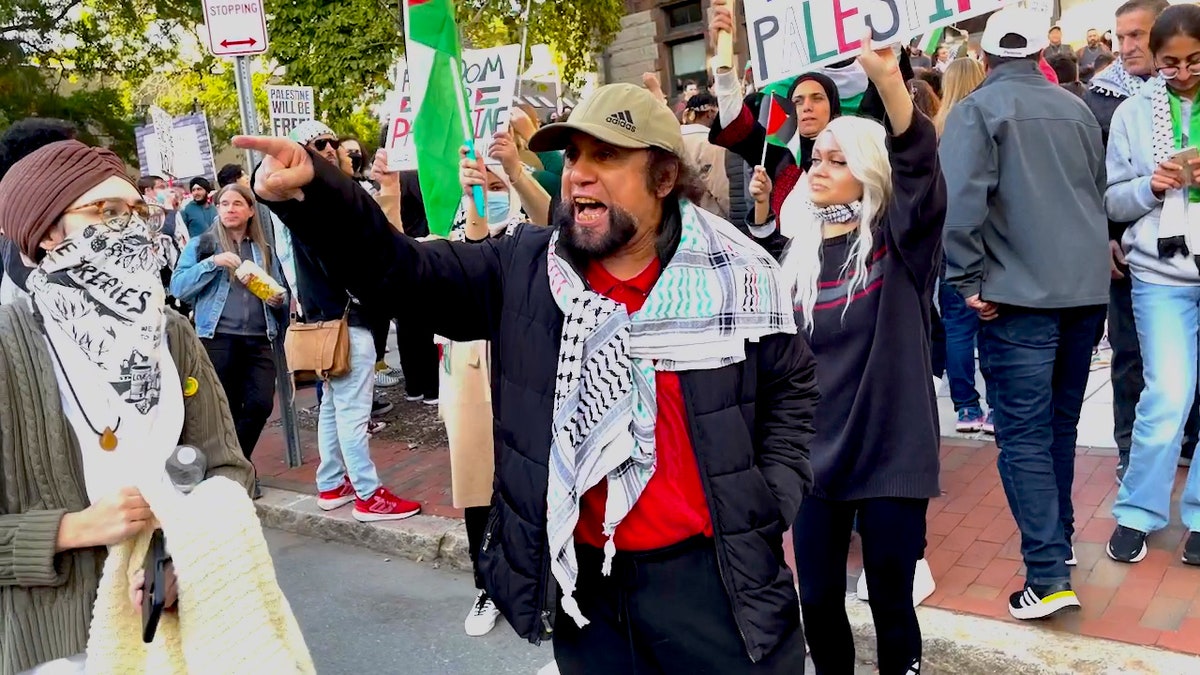
An anti-Israel protester in Cambridge on Monday shouted slurs at the pro-Israel counter-protesters, calling them “pigs” and “Nazis.” (Kassy Dillon/Fox News Digital)
Other topics that were dodged included whether the White House was concerned about safety at graduations; the response of the Biden administration to the use of police force in some of the college protests; the Biden administration’s reaction to the repercussions of the protests and how they have impacted students on campuses in terms of the University of Southern California canceling graduation and George Washington University moving exams; and if the White House supported having antisemitism monitors on campus.
In nearly every response, Jean-Pierre stuck to the message that Biden is in favor of peaceful protests and condemns antisemitism and any form of hate.
But this is nothing new.
CALIFORNIA UNIVERSITY REVEALS ‘TRUE COST’ OF ANTI-ISRAEL MOB THAT TOOK OVER ACADEMIC BUILDINGS
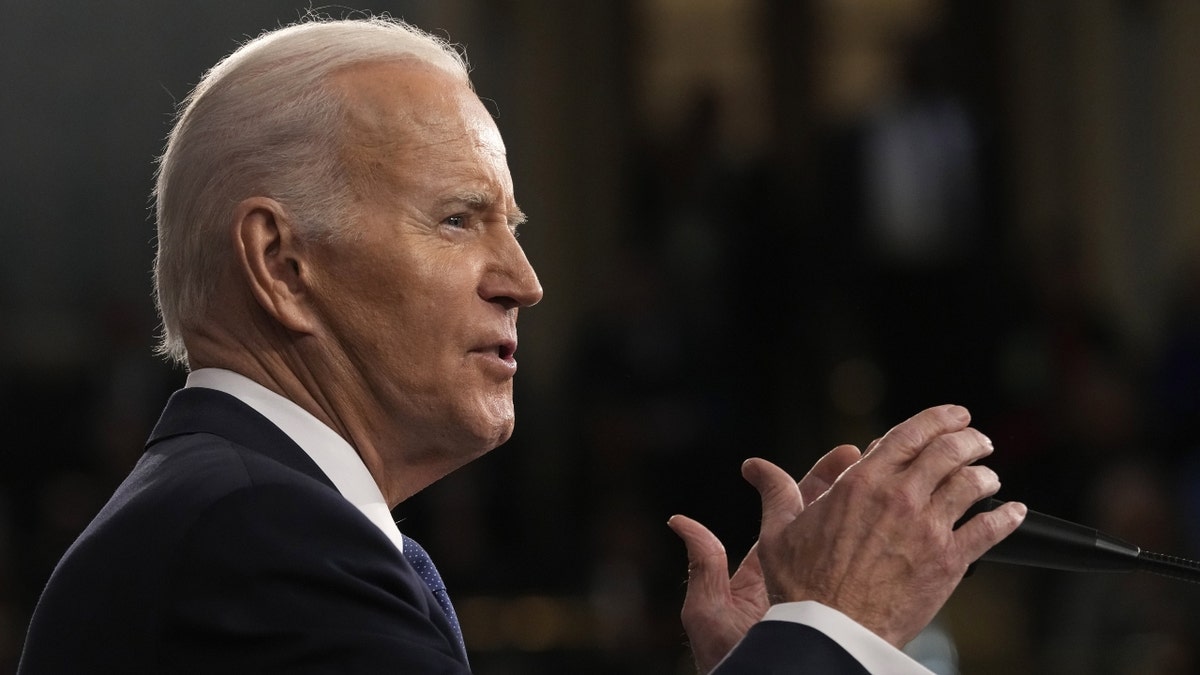
President Biden said he expects Iran to attack Israel and tensions continue to flare between to the two nations. (Photographer: Jacquelyn Martin/AP/Bloomberg via Getty Images)
On Sunday, the White House remained silent on if the administration plans to bar student protesters from eligibility for student loan forgiveness programs. One thing Biden campaigned on in 2020 was forgiving student loan debt, pledging to cancel at least $10,000 per borrower back in 2020.
While Biden denounced the protests, he came under criticism last week for also condemning those “who don’t understand what’s going on with the Palestinians.”
“I condemn the antisemitic protests. That’s why I have set up a program to deal with that. I also condemn those who don’t understand what’s going on with the Palestinians,” Biden told reporters this month.
Critics have compared it to Trump’s remarks in 2017, following a two-day riot in Charlottesville, Virginia, when White nationalists descended on the city. Trump said at the time that the violence had “no place in America,” while adding there was “blame on both sides” and “very fine people, on both sides.”
Emma Colton of Fox News Digital contributed to this report.
Politics
University protests dominate media coverage, obscuring the true horror of Gaza war

The mention of mass graves is so deeply disturbing that it’s preferable to think of such wartime horrors as dark remnants of another era, chapters of history we’ll never repeat. The Armenian genocide, the Bolshevik revolution, Nazi Germany, El Salvador, Bosnia-Herzegovina.
The fairy tale that the human race has evolved beyond such barbarism was shattered (again) last week when reports surfaced that three mass burial sites had been unearthed in Gaza. The shocking development should have made headlines, but it barely made it onto most people’s radars.
The media are instead hyper-focused on how we protest atrocities rather than the atrocities themselves.
Anti-war demonstrations on college campuses dominate conversations and coverage about the Israel-Hamas war. Every imaginable news source — legacy print outlets, user-generated posts, broadcast and cable news — has its sight set on the encampments and rallies breaking out on campuses across the nation.
The protests are worthy in their own right for drawing attention to critical issues. They’ve raised awareness (and hackles) around the staggering Palestinian death toll, antisemitism, occupation, the oft-forgotten hostages and free speech. The largely peaceful demonstrations, dealt with ineptly at best by university heads and law enforcement, are rightfully the leading national story, and its stars are a generation that many older folks had written off as apathetic.
In SEO terms, the protests present the perfect setting for a media blitz. They’re taking place at colleges and they come with powerful images and ample social media content. As an example, protests at USC unfolded live on television across various local stations, with choppers capturing the action from every imaginable angle. They’re also an easier way into the war, bringing the Mideast conflict home to America without the horror of witnessing a real battle.
But blanket coverage of the uprising by students is so omnipresent, it’s overshadowed news from the very war they’re protesting.
There’s been a stunning lack of coverage and outrage following an announcement Friday by Palestinian authorities that they’d uncovered 390 bodies from mass grave sites around Gaza’s Nassar and Shifa hospitals, facilities that were raided and destroyed in Israeli strikes. The bodies were reportedly found in the pits, buried by bulldozed debris, after the Israeli Defense Forces ended operations in the region.
Exterior of Shifa Hospital in Gaza City on Nov. 10.
(AFP via Getty Images)
Women and children are among the deceased; the majority are still unidentified. Some of the dead were allegedly found stripped naked with their hands bound behind their backs. “It indicates serious violations of international human rights law and international humanitarian law, and these need to be subjected to further investigations,” said Ravina Shamdasani, a chief spokesperson for the U.N. high commissioner for human rights, Volker Türk.
The sheer barbarity of these scenes may explain why they haven’t garnered more attention. It’s simply too awful to process, so we turn away.
And if the discovery of mass graves is a hard story to watch, it’s an even harder one to cover. Israel continues to restrict international journalists’ access to Gaza, so there are fewer reporters there to bear witness. For those who are there, it’s one of the deadliest wars on record for media workers, and civilian casualties are more than 34,000. If reporters do survive, they’re faced with intense investigative digging to get to the truth. And when their stories are finally reported, they’ll be lambasted, trolled and harassed by one side — or both — for their perceived bias.
But we need answers, and short of an independent investigation (the Biden administration has left it up to Israel to investigate itself), we’re left to guess whether war crimes have or have not been committed.
The dearth of information is partly due to the contraction of American newsrooms. Journalism outlets big and small have lost the resources, access and the expertise to cover wars like they once did. It’s also up to elected officials to draw attention to potential war crimes, especially when the U.S. plays such a central role in the conflict.
Politicians like Mike Johnson have instead been busy raising their profiles by inserting themselves into the Palestinian-Israeli mire. Painting himself as a defender of student safety, the Republican House speaker instead put hundreds if not thousands of anti-war protesters in danger — Jewish students included — by conflating their pro-Palestinian stances with sympathy for Hamas. “The things that have happened at the hands of Hamas are horrific, and yet these protesters are out there waving flags for the very people who committed those crimes. This is not who we are in America,” Johnson posted Thursday on X, formerly Twitter.
It was refreshing to see that ABC News didn’t just quote him and move on, as many other news outlets did. The network reported that there had been no documented cases of demonstrators waving Hamas flags. Such details matter when the safety of students is at stake.
But critical questions remain around Gaza’s mass graves, and there’s the matter of accountability.
“The grave in question was dug — by Gazans — a few months ago,” tweeted Nadav Shoshani, a spokesman for the Israeli Defense Force. “This fact is corroborated by social media documentation uploaded by Gazans at the time of the burial. Any attempt to blame Israel for burying civilians in mass graves is categorically false and a mere example of a disinformation campaign aimed at delegitimizing Israel.”
Israeli officials said the corpses buried near Nasser Hospital had been exhumed to check whether they were those of Israeli hostages. An Israeli military official said that all remains were then “respectfully returned to their place.”
Gaza authorities affirm that graves were dug before the Israeli military’s arrival, but allege that the IDF added bodies to the site. Gaza Civil Defense said that only about 100 people were buried in graves before the IDF raid, and that 390 to 392 bodies (accounts vary) had since been recovered.
The widely reported slaughter of innocent Israelis and Palestinians, and the taking of hostages, prompted the protests in the first place. Now, the cries of demonstrators are the story. But we can certainly pay attention on both fronts, even if one of them requires a lot more work and emotional girding. It’s our moral imperative to pay attention or risk becoming bystanders as another dark chapter on wartime atrocities writes itself.
-

 World1 week ago
World1 week agoShipping firms plead for UN help amid escalating Middle East conflict
-

 Politics1 week ago
Politics1 week agoICE chief says this foreign adversary isn’t taking back its illegal immigrants
-

 Politics1 week ago
Politics1 week ago'Nothing more backwards' than US funding Ukraine border security but not our own, conservatives say
-

 News1 week ago
News1 week agoThe San Francisco Zoo will receive a pair of pandas from China
-

 World1 week ago
World1 week agoTwo Mexican mayoral contenders found dead on same day
-

 World1 week ago
World1 week agoBrussels, my love? The EU single market is not sexy enough for voters
-

 Politics1 week ago
Politics1 week agoRepublican aims to break decades long Senate election losing streak in this blue state
-

 World1 week ago
World1 week agoEU sanctions extremist Israeli settlers over violence in the West Bank
